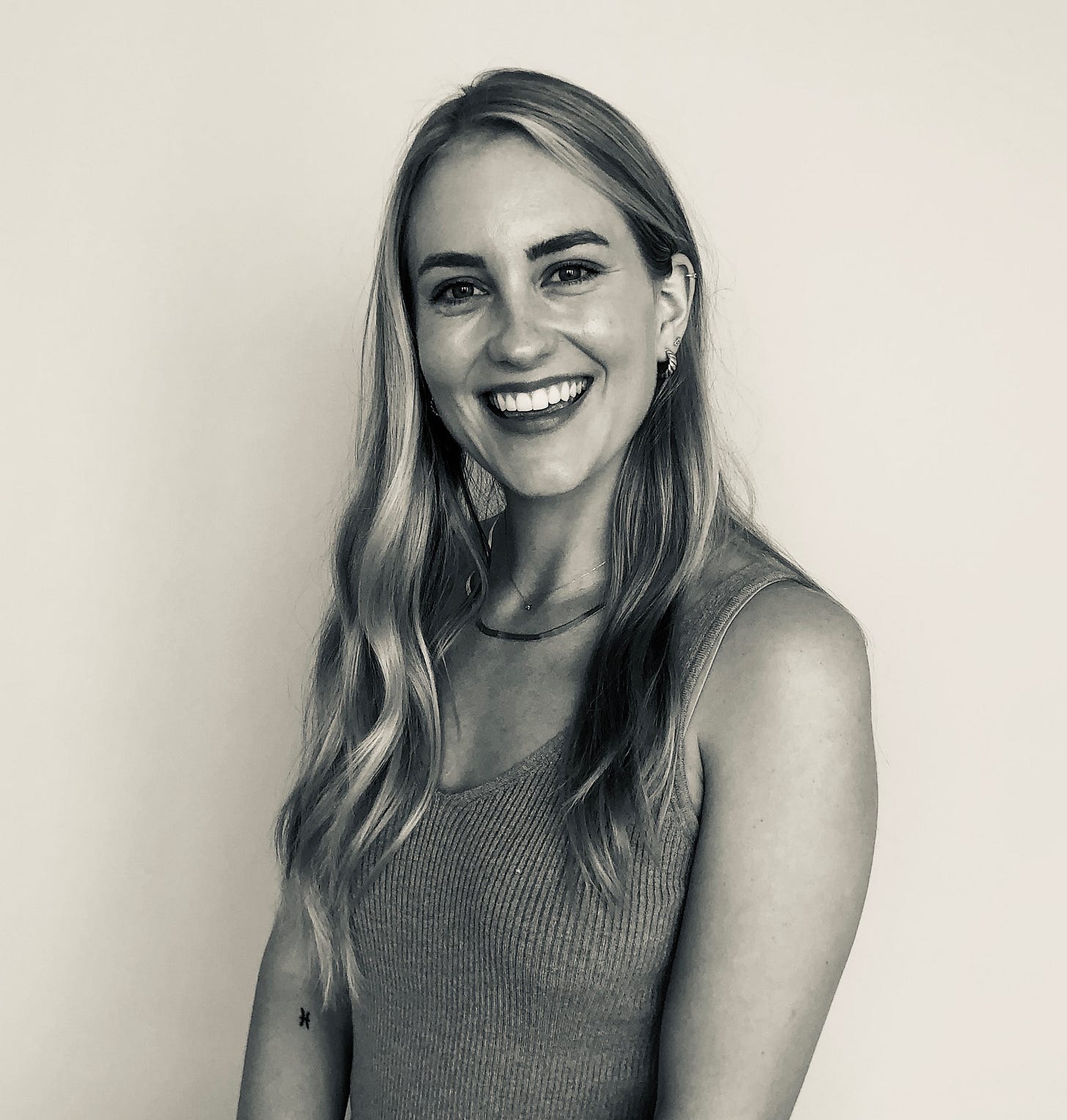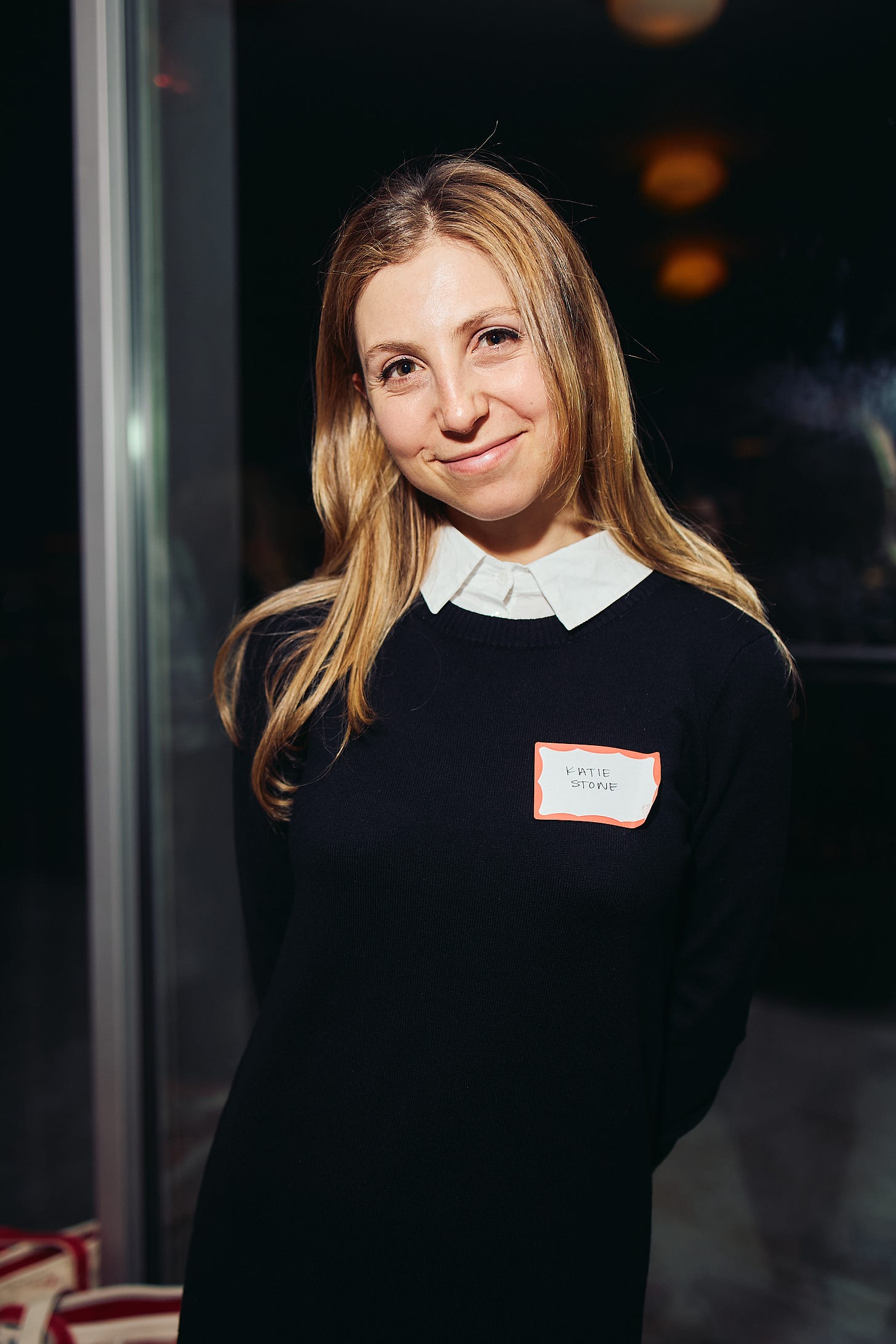Should you leave your job?
I can’t answer that, but here are four marketers on why they left theirs.
Recently, I’ve received several questions about the “right” time to leave a role. Career decisions are highly personal, so generic advice can hurt more than it can help.
To illustrate my point, I’ve asked four successful marketers to tell us about a job they left and why. Read on to hear the feelings, thoughts, and experiences that propelled them forward in their career. Pay attention: what feels familiar?
If nothing else, I hope these interviews help you trust your unique decision-making process. What matters most is that your choice to stay or leave feels authentic to you.
Ali Kriegsman
What role did you leave?
I was the CMO of a fragrance startup and joined the company full-time a year and a half after it had launched after consulting for the founder.
What stage was the company at the time?
Seed stage.
Why did you leave?
My reasons were twofold: first, a stark difference in values. I've been in the game for ten years now. I sold my first company, which supported thousands of e-commerce businesses, and I've seen a lot. I also have my intuition, my definition of right and wrong, and my take on what's passable in this vague, hazy world of venture capital.
As for reason two, I wasn’t given enough latitude to do my job. I think the best leaders let their people rip, you know what I mean? I don't operate well in a controlling environment, and I don't like being micromanaged. Since I had initially worked with the company as a consultant, I made an educated guess about how the dynamic might feel in a full-time partnership capacity. My educated guess was wrong. You live and you learn.
What did you do after, or what are you doing now?
Now, I'm a mercenary-for-hire. I excel when building a website from scratch with a visionary founder, a designer, and a dev. I also consult for many incredible skincare brands, helping them run their influencer marketing programs. I built an insane creator program at the company I left, seeding 350 perfumes to TikTok creators and increasing our site traffic by over 800% in two weeks, so I'm trying to bring what I’ve learned to my consulting practice.
What I'm most proud of, though, is my Substack and fiction thriller, which comes out September 17. It's inspired by my time in Silicon Valley and compels readers to question the purity of their ambitions, the health of their most intimate relationships, and whether we really know each other - or ourselves.
Chenaya Devine Milbourne
What was the role?
I was the AVP of Global Marketing for Makeup at IT Cosmetics.
What stage was the company at the time?
When I joined, IT Cosmetics was recently acquired by L’Oréal. It was in what I’d describe as the “strategic integration” stage — transitioning from founder-led to embedded within a global organization.
Why did you leave?
I’m incredibly grateful for my time at L’Oréal because of the training I received and the inspiring leadership team. I ended up leaving in 2020 after I received an offer I couldn’t refuse: the opportunity to join Glossier as Director of Product Marketing.
I once received advice that’s stuck with me — when considering a career move, it’s wise to only change one or two out of the “big three”: category, function, and company. The role at Glossier presented opportunities to build skills in a different type and size of organization while allowing me to lean into my functional and category expertise. Ultimately, what pushed me to make the move was knowing the experience I would gain at Glossier was something I couldn’t replicate at L’Oréal.
What did you do after, or what are you doing now?
After spending over five years immersed in startups, I work in a fractional and consulting capacity, partnering with high-growth start-ups and established brands. I’m incredibly grateful—and fortunate—to be able to do this work, which has been made possible in large part by the relationships I’ve built throughout my career in the beauty industry.
One piece of advice I always share: when it’s time to move on from a role or company, do everything you can to leave on the best possible terms. Industries are often smaller than they seem, and the relationships you build today can open unexpected doors tomorrow.
Katie Stone
What role did you leave?
I started as the first hire and grew it into an agency with the founder, becoming managing director and then, most recently, CEO. Being that it was a team of 5, the titles were always a bit fluid, especially when you’re running the show. My role essentially included the responsibilities of a lead account manager, creative strategist, and copywriter while running the business — growing a team, winning new clients, being legal + HR, you know.
What stage was the company at the time?
Boutique creative marketing agency.
Why did you leave?
As is natural, I was ready for a change. I loved my time there and am proud of what my team and I accomplished. I got the intuitive sense that it was time for my next move. I describe the feeling as "itchy" — I was antsy mentally and creatively for a new challenge, a change in surroundings, something... new. Revolutionary, I know, but it only hit me when I was on vacation with friends and I was able to get a little distance from my reality. Nothing like a physical location change to shift your perspective.
What did you do after, or what are you doing now?
I started to do freelance marketing work to support myself while looking for my next full-time gig, but I found myself enjoying the work I was doing and how I was operating, and I've been here ever since. I consult on early-stage brand positioning, creative direction, and content and editorial strategies for established brands. Plus, I write my Substack and freelance for publications like The Strategist and Vogue.
Michelle Wainwright
What role did you leave?
I was the Digital Director at a midsize PR agency. It was my first ‘real job’ after college, and I worked my way up from Junior Digital Account Executive to Digital Director.
What stage was the company at the time?
The agency had been around for over 30 years when I joined, so well-established.
Why did you leave?
My agency experience was boot camp for the rest of my career. But after six years, I hit a ceiling in terms of what I was learning and my potential salary growth. I started to notice that I was performing on par with or at a higher caliber than people more senior than me, and through conversations with friends, I was convinced I could make a higher salary in-house (this was before job postings required salary ranges). I was also excited about immersing myself in only one brand since I spent my entire career working across 4+ accounts simultaneously.
What did you do after, or what are you doing now?
Initially, I took a General Manager position at a venture studio, then moved to a Head of Brand & Marketing role at Wondermind, a mental health media company. I also take on a few clients as a Fractional Head of Brand and host my podcast, Creative Juicy. It’s funny to think about my path from agency to in-house with fractional work because, in a way, I am back to where I began. But this time, I have more autonomy and only work with a select number of clients whose missions I deeply connect with.
For marketers who have left a job to pursue a new opportunity, what advice helped you decide to stay or leave? What was your reasoning? Any advice to share with others in a similar position?










This may be overly simplistic, but I love the "you're either earnin' or learnin'" approach.
Immediately following all these women. Love this, thanks for sharing!